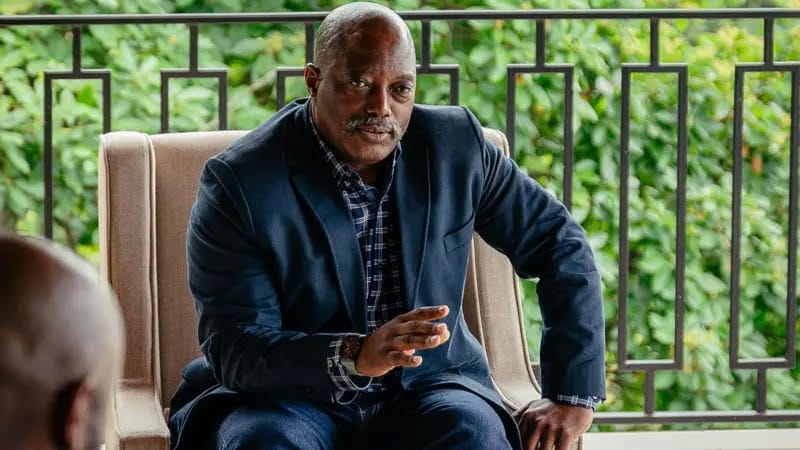Former Democratic Republic of Congo (DRC) president Joseph Kabila has resurfaced in Kenya’s capital, Nairobi, to rally opposition forces against what he called the “authoritarian rule” of President Félix Tshisekedi.
Kabila, who ruled the vast Central African nation from 2001 to 2019, met this week with several opposition and civil society leaders to form what they described as a campaign to “save the DRC from crisis.”
A statement released after the two-day meeting urged citizens to unite in peaceful resistance and accused the current government of undermining dialogue and worsening economic hardship.
Government Downplays Opposition Gathering
The Congolese government dismissed the meeting as insignificant.
Government spokesman Patrick Muyaya labelled the Nairobi gathering “a reunion of fugitives,” a reference to the legal cases facing several participants.
Kenya’s foreign ministry did not immediately respond to questions about hosting the meeting.
Kabila himself faces a death sentence handed down by a military court earlier this year for alleged war crimes and treason— charges he rejected as politically motivated.
He did not attend his trial and had not been seen publicly since May, until new images of him in Nairobi circulated online this week.
Other Convicted Figures Join Talks
Also present at the Nairobi talks was former prime minister Augustin Matata Ponyo, sentenced in May to ten years in prison over corruption allegations.
The participants accused President Tshisekedi of concentrating power while failing to deliver on promises to tackle insecurity, poverty, and regional instability.
They pledged to mount a diplomatic campaign to alert African and international partners about what they called the “democratic decline” in the DRC.
Regional Tensions and M23 Links
Kabila’s re-emergence comes amid fragile peace efforts between Kinshasa and the M23 rebel movement in eastern Congo.
The government has previously complained about Kenya’s willingness to host opposition figures allegedly linked to the group.
In Doha, DRC officials recently signed a deal with the M23 to strengthen monitoring of a ceasefire—an agreement both sides accuse each other of violating.
Background
Joseph Kabila took power after the assassination of his father, Laurent-Désiré Kabila, in 2001.
He ruled until 2019, when he stepped down following disputed elections that brought Félix Tshisekedi to power.
The two men were initially allies but later fell out, prompting Kabila to leave the country in 2023.



